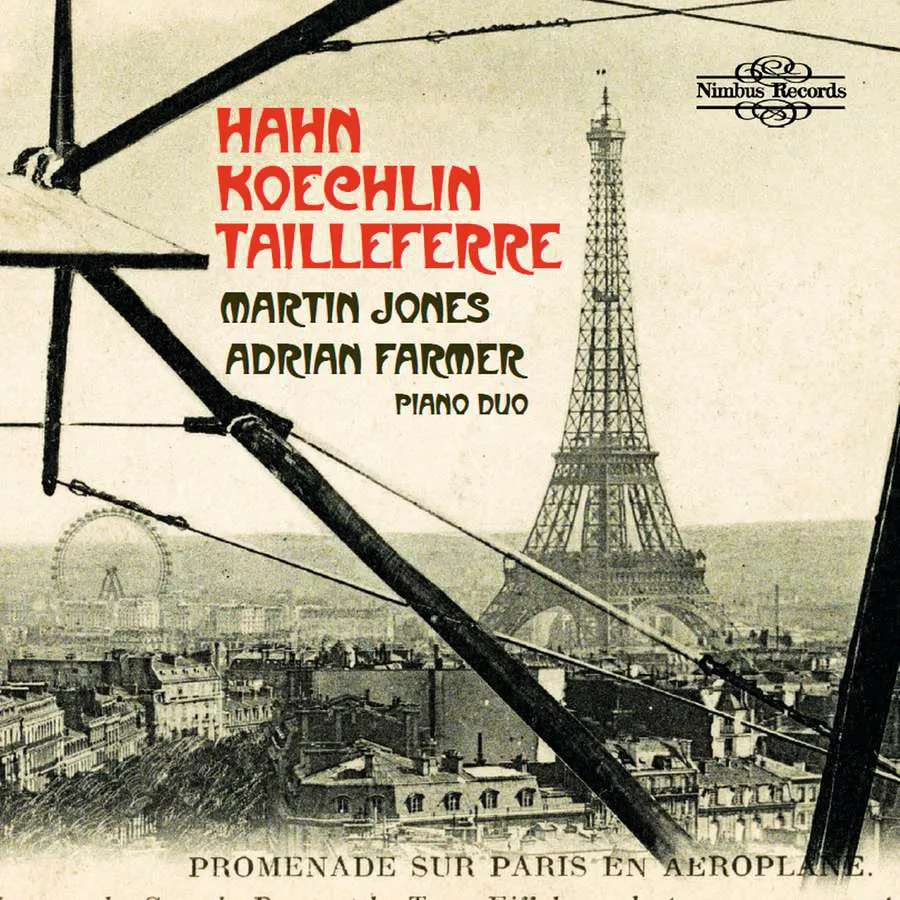
Hahn • Koechlin • Tailleferre Hahn: Le Ruban dénoué; Pour bercer un convalescent; Koechlin: Suite for two pianos, Op. 6; Suite for piano duet, Op. 19; Sonatines Françaises Nos 1-4, Op. 60; Tailleferre: Choral et variations; Sonate pour deux pianos; Jeux de plein air etc Martin Jones, Adrian Farmer (piano) Nimbus NI5953 150:28 mins (2 discs)
Of these three, two were disappointing, the third a very happy surprise. Disappointments first. I bow to no one in my love for Reynaldo Hahn’s early songs, which touch the heart without apparent effort and, at their best, deserve to be mentioned in the same breath as Fauré’s. But I sense that his 40-minute cycle Le Ruban dénoué, written while on active service in the French army in 1915 with shells bursting round him, may have been composed as a form of therapy. The implacably restless modulations leave the ear and brain exhausted, and one feels for Hahn, a brave soldier who returned to civilian life with the Légion d’honneur and the Croix militaire. But a little of this goes a very long way.
Less disappointing, if only because more expected, were the pieces by Germaine Tailleferre, dating from 1917-79 (the date of her Choral et Variations). I own up to being unresponsive to her music – and no doubt a vat of boiling oil awaits me in the afterlife. If I describe it as ‘French Hindemith’, that’s not meant as a compliment. The harsh, lumpish harmonies become tiring in bulk.
The lovely surprise came in the shape of Charles Koechlin who, as well as being a well-known eccentric, also had a sense of humour. His two Suites and four Sonatinas are a delight, redolent of French nursery songs even while being put through their contrapuntal paces. Their delicacy and elegant shaping help explain why so many of the young French composers, Tailleferre included, went to Koechlin for advice.
As for the playing itself, with only two small reservations (an untidy start to Jeux de plein air and an occasional reluctance to observe the differences between p, pp and ppp) both pianists are fully in control.
Roger Nichols